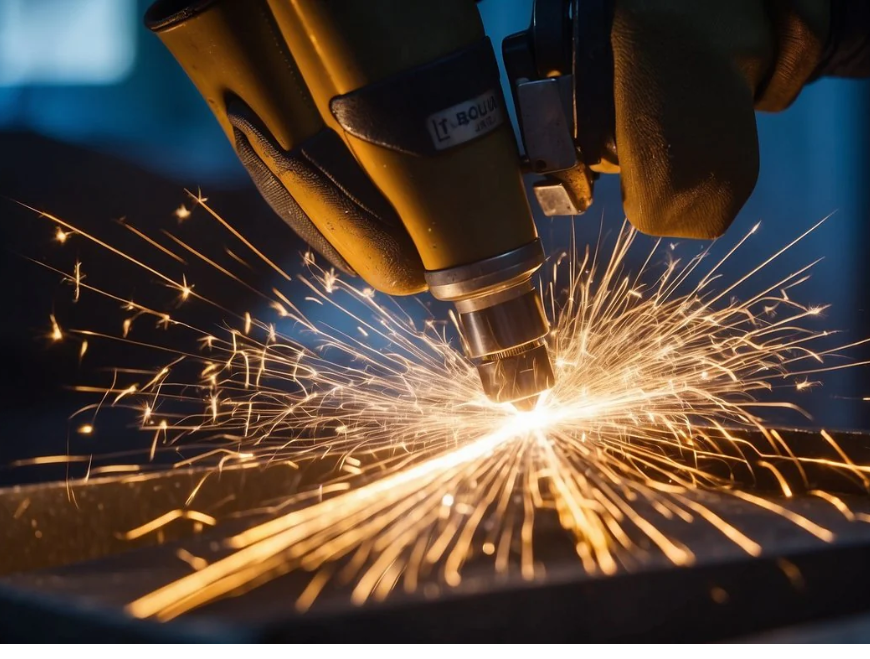6:00 am - 4:20 pm - Sat - Sun
-
-
-
Dammam - Kingdom of Saudi Arabia
6:00 am - 4:20 pm - Sat - Sun
Dammam - Kingdom of Saudi Arabia

When it comes to welding, most people focus on technique, equipment and wire type but there’s one silent factor that often gets ignored: wire storage.
Yes, you read that right.
Even the best MIG or flux-cored wire can become useless if it's not stored properly. At Safeworld, we’ve seen firsthand how poor storage can silently ruin weld quality, cost time and waste materials. The good news? With the right storage practices, you can protect your welding wire and maintain excellent results every time.
Let’s dive into why wire storage matters and how to get it right.
Welding wires are sensitive to their environment. Things like moisture, dust, temperature changes and corrosion can quickly impact the quality of your wire. If exposed to these conditions, the wire may develop rust, oxidation or contaminants that lead to:
Poor arc starts
Increased spatter
Porosity in welds
Inconsistent weld strength
Electrical feeding issues
And once the wire is damaged, there’s no going back.
That’s why proper wire storage isn’t optional it’s essential to ensure consistent weld quality.
Here’s how we at Safeworld make sure every spool stays in perfect condition from day one to the final weld.
Moisture is the enemy of welding wire. It causes rust and oxidation, which leads to weak and porous welds. Always store wire in a dry area, away from water leaks, humidity, or damp floors.
Pro Tip: Use sealed storage cabinets or airtight containers with desiccant packs (moisture absorbers) to keep humidity away.
Fluctuations in temperature can cause condensation, especially if wire is moved from a cold to warm space. Condensation leads to surface corrosion and makes the wire harder to feed through the machine.
Safeworld Solution: We store wires in temperature-controlled rooms to maintain consistency and avoid thermal shock.
Welding wires are shipped in protective packaging for a reason. The original box or spool wrap acts as a barrier against dust, moisture, and air exposure.
Don’t open the packaging until you're ready to use it and if you do, reseal it after every use.
Placing wire spools directly on the floor can lead to moisture absorption and physical damage.
Use racks or shelving systems to keep wires off the ground and safe from accidents.
Just like food, welding wires have a shelf life. Older stock can degrade over time especially in tough environments.
Use the FIFO rule (First In, First Out) to ensure older wires get used before newer stock.
Dust buildup on wires can block the smooth flow of wire through your welding machine, affecting arc performance.
At Safeworld, we use sealed wire dispensers or wire feeders with covers to prevent contamination during both storage and usage.
Always label your wire spools with type, size, and date received. This keeps storage organized and helps identify any wires that may be nearing the end of their shelf life.
Organized storage faster access, fewer mistakes, and better weld quality.
At Safeworld, we don’t just sell wires we protect their performance from storage to final use. Our commitment to quality doesn’t stop at the product it continues with best practices in handling, storing and maintaining every spool that enters our facility.
That’s why professionals trust us not just for what we deliver, but for how we take care of it before it reaches them.
Great welds begin long before the torch is lit. If your wire is rusty, damp, or dusty your weld will show it. But with smart storage habits, you can protect wire quality and ensure strong, clean welds every single time.
Want expert-approved welding wire and storage tips tailored to your site?
Let Safeworld be your trusted partner in welding excellence.